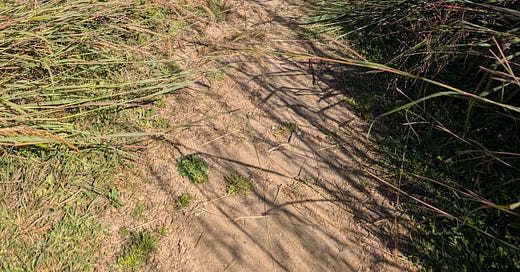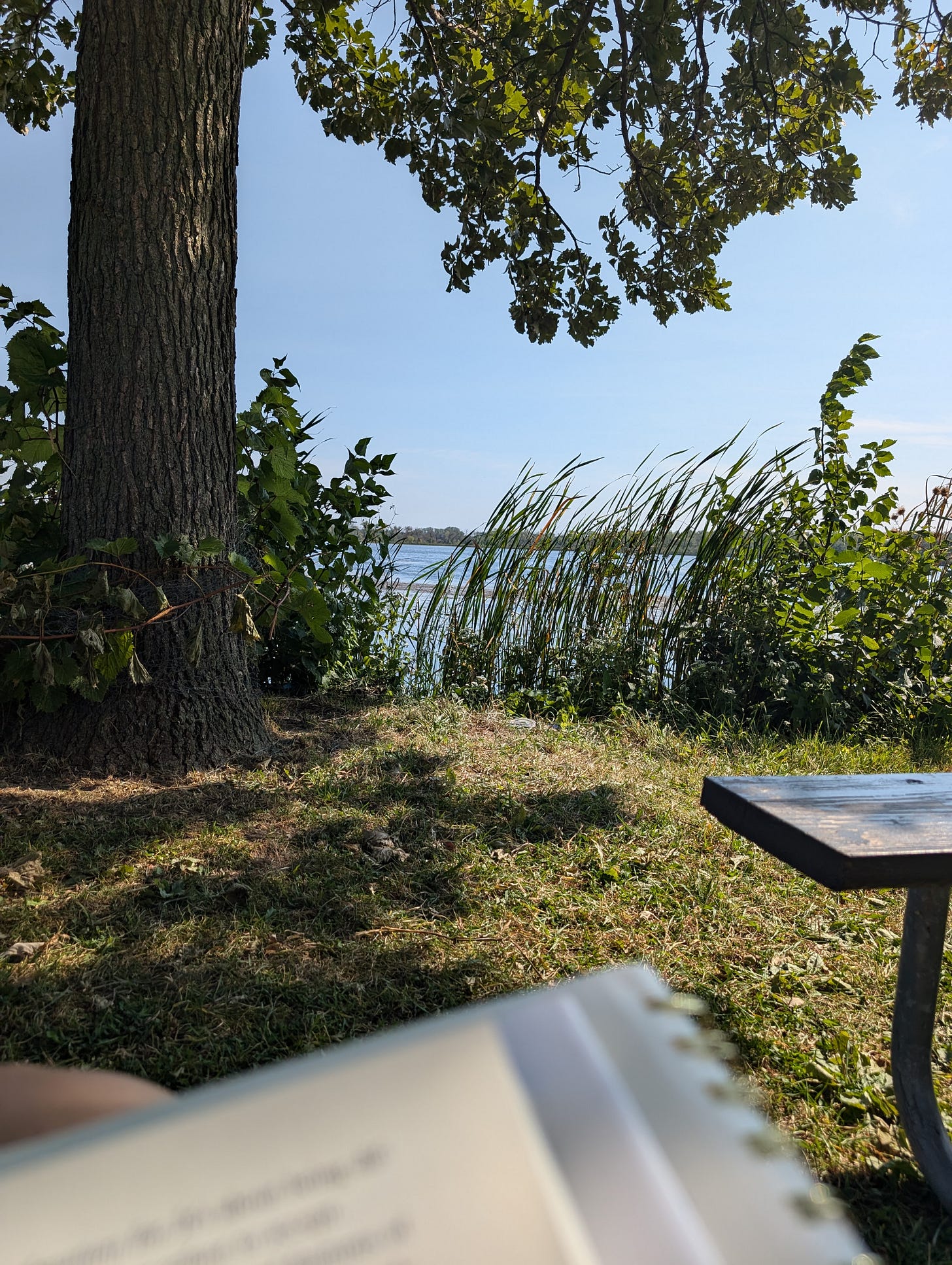“Well what do you want?”
“I don’t know.”
This exchange feels perennially familiar to me. I’ve sat in both seats, the asker and responder. I’ve witnessed the exchange among other people. I’ve journaled, set goals, participated in personal and individual development, all to answer this question. What do I want?
There are cousins to this question, too”
“I know what I want, but how do I get there?”
“I know what I want, but I don’t believe I deserve it.”
“I know I think I want but is this just a grass is greener on the other side kinda thing?”
Why do these questions keep showing up? To be fair, I’ve known people who just seem to know what they want. I’ve silently envied people who not only seem to know what they want but actually act on it too. I still remember the first time I heard Martha Beck tell her story about leaving academics, becoming a coach and writer. I was enamored with her conviction and readiness for action. Of course, this story is told in retrospect, and things may have been much less clear when she was in the middle of choosing.
Lost
In early adulthood, I was very disconnected with my sense of inner direction. Thats not the same as NOT having direction. I had direction, goals, drive. But it wasn’t a path I was forging myself. As
described in her recent essay - I was living a “conventional life”, following a clear set of instructions. There is nothing wrong with living conventionally, but for me, it wasn’t authentic, and it made me unhappy and unwell.As a physician coach, I’m very aware of how medical training specifically disconnects us with our inner sense of direction. Each step - MCAT, medical school, residency - is built on creating proof that you are worthy/enough to be accepted and approved. The path is narrow -medical school is exactly 4 years long, with specific classes and rotations that everyone has to do. Residency is in some ways even more restrictive - your schedule is made for you and you are lucky if you get 1 week of vacation when you desire. You are there to do the work, prescribed by the program. When you get out, theoretically you are free to make more nuanced and personal choices. But by that time I think many of us have forgotten how.
For me, my disconnection from inner direction wasn’t limited to professional choices. At 28 I had my first child. As a young mother and pediatric resident, I read books and felt prepared to take care of a baby. However, he didn’t follow the books. He didn’t sleep for more than 20-30 minutes at a time during the day. He didn’t care for routine. He wanted to be held all the time. If you laid him in his crib awake, he cried and cried. I remember maniacally going back to the books over and over, maybe I’m doing it wrong, maybe I’m missing something. Why wasn’t it working?
Contrast that with the birth of my third child. I read no books. I used my intuition and experience to sense what he needed. I made no attempts at a schedule and frankly probably didn’t even know what time it was most of the day. I explored whether he would be one of those magic babies who could be put in a crib and go to sleep (he wasn’t), and adjusted our approaches to see what worked for us all. I prioritized keeping him fed and rested, and to keep the rest of us fed and rested enough to feel sane.
I know that part of this difference is the gift of experience. Experience teaches us, but only if we let it. And if we are willing, experience can help us learn to trust ourselves. To shed the believe that we always have to look outward for answers and direction. This does not mean arrogance or ignoring expertise. It just means that each of us has the power to know ourselves and the context of our own lives best. That in trying to always fit into an outside mold or set of advice, we can contort ourselves in ways that are painful.
This third time around I trusted myself to notice what he needed, make a choice, and be ok with that. I wasn’t frantically searching for the perfect approach or plan. And, though I probably got the same amount of sleep (very little), I was more at ease, because I wasn’t in an anxiety-driven quest to get it ‘right’.
The inner compass
Over the years of exploring, learning and discussing this shift from an outside-led, to an inside-led life, Shandra and I arrived the concept of the Inner Compass. This is not a novel term, its used throughout many teachings and wisdom traditions. Its message is clear. A compass gives us direction, it orients us in our place on the earth. Using an inner compass to move through life reminds us that we can look at maps, at trees and landmarks, but that we must learn to use our own sense of direction if we want to be able to get where we want to go.
My working definition of our inner compass is this: a body-mind-soul sense of inner direction and wisdom that helps us know what's most important, navigate our lives, and trust our ability to forge our path. Sometimes this sounds incredibly new-age, like magical thinking. But mostly, it feels true to me. We don’t put the same judgment on other parts of the natural world that intuitively know how to be. A tree knows how to be a tree. It intuitively grows, puts out leaves, tells them when to drop. It conserves energy when stressed, and grows in times of surplus. Monarchs know when to fly south, where to find plants that sustain them and their eggs. We don’t question these things or call them woo-woo. So why don’t we believe the same for ourselves? That there is an inner sense of direction, a call to be authentic, to be our true nature, and that that information is worth listening to?
Why does the inner compass sometimes feel distant?
A lot has been written about what gets in the way of acting authentically, from a place of inner direction. Martha Beck commonly describe cultures as the major block to living from a sense of inner direction. Many have written and talked about our conditioning, which can come from family, religion and our microcultures. I think these are both true, and I think in our ‘wellness’ oriented world, there is more to it. Even if we decide to shed culture and forge our own path, there are many parts of the wellness world that also become hurtles. I like to think of these as detours. I’ve organized them into four main detours:
The four detours
Searching for the perfect recipe for how to live a good life. A belief that somewhere out there is the perfect combination of habits, rituals and behaviors that will give us the key to ease and happiness. (i.e. with my infant, thinking there was a perfect way to get him to follow the baby rules, I just hadn’t found it yet)
Turning teachers into gurus. This is the belief that that person over there has it all figured out, if I could just know their secrets, I, too would have a perfect life.
The quest for the treasure map. This is the belief that there is a specific path that will get me to my goals or destination, if I can just find it.
Thinking practice is the game. The belief that if I just perfect a practice, like yoga or meditation, I will be totally happy and filled with ease.
I call these detours for a reason. None of these are inherently bad things to seek out, it is in our nature to seek teachers, notice how others live, incorporate practices and rituals that support our lives. I personally have tried things in each of these categories, and have found some useful, others distracting. My sense is that most of the ‘wellness’ world fits into one of these four categories. Bullet journal? Practice. Stories of folks who’ve figured out how to make a 6 figure salary working 15 hours a week? Guru. Ten steps to xyz? Treasure map. You don’t have to look around to see that these are everywhere. Someone, something, telling us that they have the key to a better life. It can feel overwhelming.
While these might seem silly on the surface, I suspect that if we really reflect on our lives, many of us will see how we have turned these things into detours. I know I have. And reflecting on this can be hard. For me it brings up perfectionism and optimization desires. Guilt and embarrassment for all the things I’ve tried and all the things I’ve evangelized to others. I also feel a sense of kindness - look at us all trying so hard! Universalism - we all want the same things at our core. The truth is that we all have and continue to engage in these four detours. And that isn’t wrong. Some of these things have definitely made my life better and easier.
The misstep isn’t in trying these things, in taking detours. When we are stuck or down a dead end, sometimes we need a detour. The misstep, in my experience, is in mistaking the detour for the destination. Getting so far down that path that you forget where you were going. My personal lesson isn’t in taking fewer detours. It’s to avoid confusing it for my life path.
When we find ourselves on a detour, obsessed with a new diet or biohacking routine, we can pause. Look around. What is it about this detour that I’m drawn to? Does this help me get where I want to go? Or has this detour actually taken me ten miles down a road I never wanted to be on?
Exploring recipes, gurus, and other people's lives can tell us more about ourselves, as long as we don’t think the answer is in replicating their path. Instead, we can see what enriches what is important to us, and helps us know ourselves better. And it's our inner compass, our own discerning, that helps us sort through. What is truly supporting my well-being, my values, and what is distracting?
Some reflections to leave you with:
How do you know if you are on your path or a detour? (for a meta question - do you even believe you have a path?)
What information inside you do you use to explore this question?
When is a time when you realized you were stuck in a detour? How did you know? What did you find out about yourself after that experience?
Please leave a comment or note in the chat. I’m extremely curious to see how the detour metaphor lands with others.
Hoping you have some time to connect with what’s most important this week,
<3 Sarah






